Provisioning backend services to mobile with Oracle MCS

MCS, or Mobile Cloud Services, is Oracle’s relatively new PaaS tool for provisioning your data to mobile devices or IoT devices. And actually, it’s a pretty simple tool. MCS aims at simplifying the creation of mobile API’s (especially REST API’s) on existing or newly build web services. It delivers an enterprise Mobile Backend-as a-Service (MBaaS).
On top of that, mobile applications can be created. MCS supports natively build apps, hybrid apps or one of the no-code app development frameworks like MAX (Mobile Application Accelerator) or MAF (Mobile Application Framework).
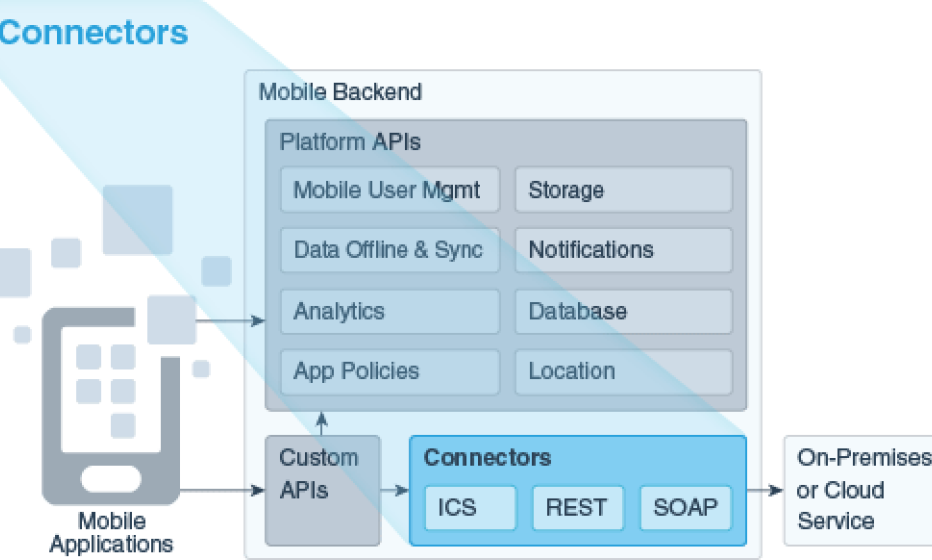
On the last Oracle Community Forum I got the chance to work with it and I can show you some screens.
Oracle makes a distinction between service developers and mobile app developers. I’m not so sure if this are necessarily 2 different people, but it might create some overview in the tasks.
On logging in to MCS, a dashboard is presented where the mobile app developer has the choice of making a Mobile Backend, an API or a Connector. It’s recommended to create these in that particular order.
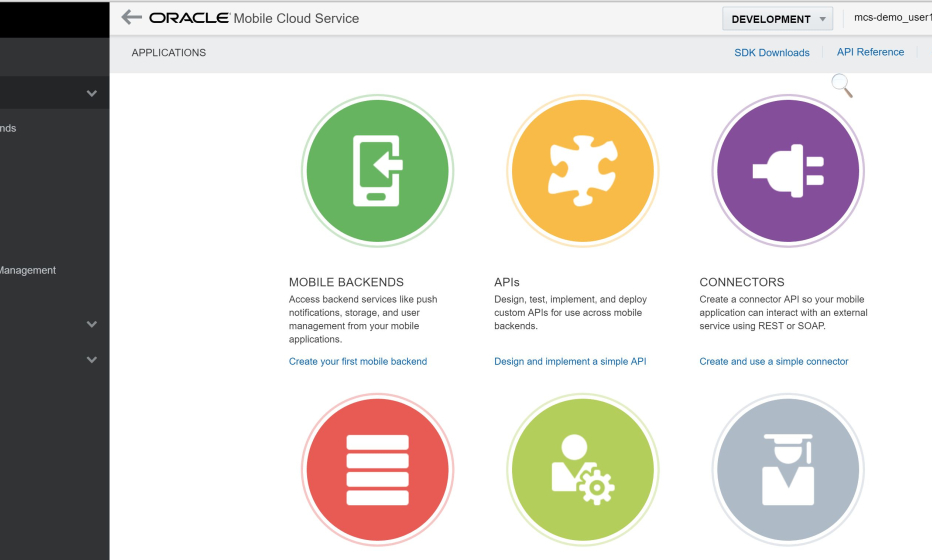
You start with creating a Mobile Backend, which is nothing more than a group of server-side API’s and other resources (like collections and roles) for your mobile apps of choice.
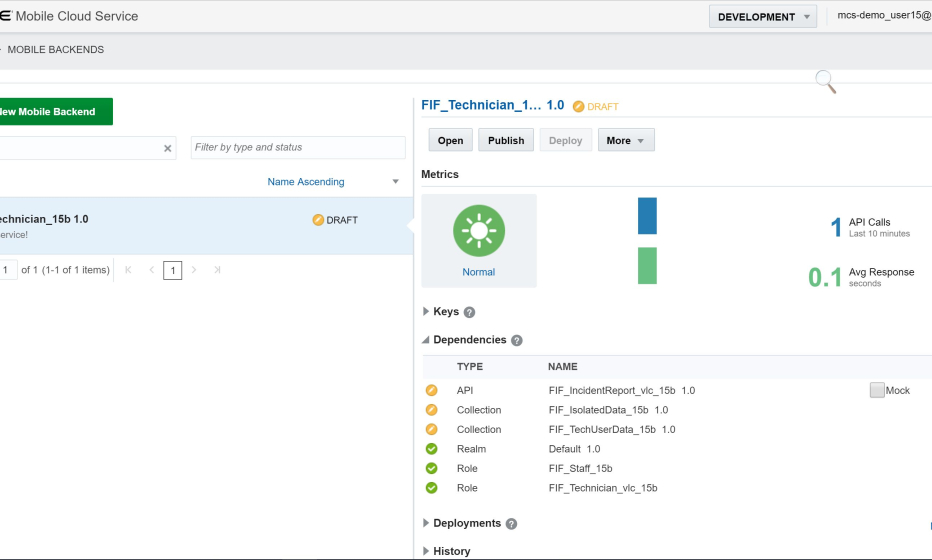
Once created, the developer can start adding API’s, and collections. With collections the data stored in MCS’s storage API can be accessed and manipulated.
Another task might be the registering of client applications, so that they are able to receive notifications and provide analytics to MCS.
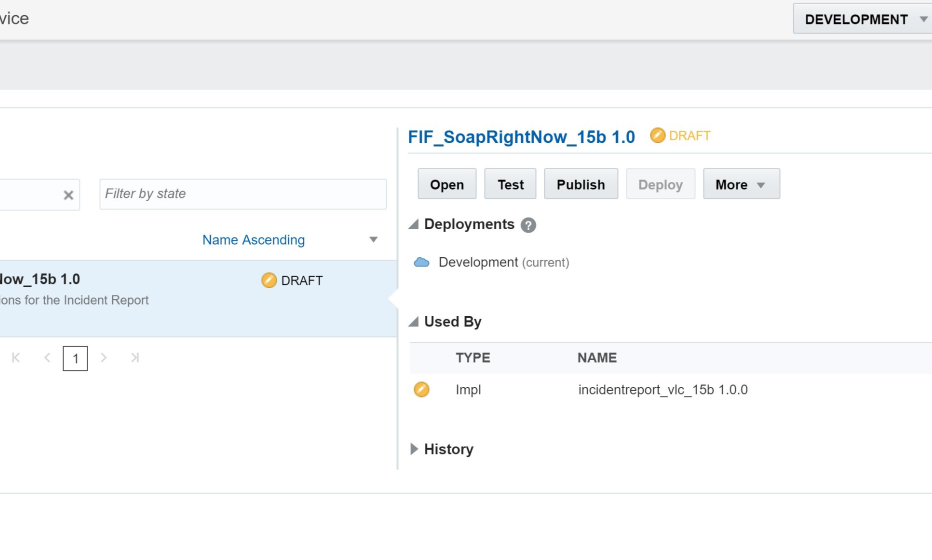
The service developer should now only have to focus on creating the connector API’s, for instance a REST connector API between the custom API and the backend, as described here:
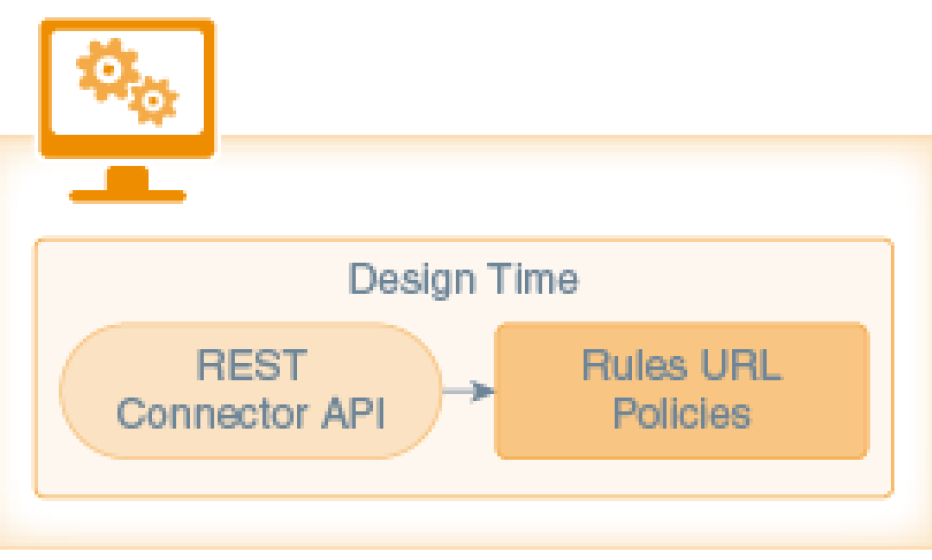
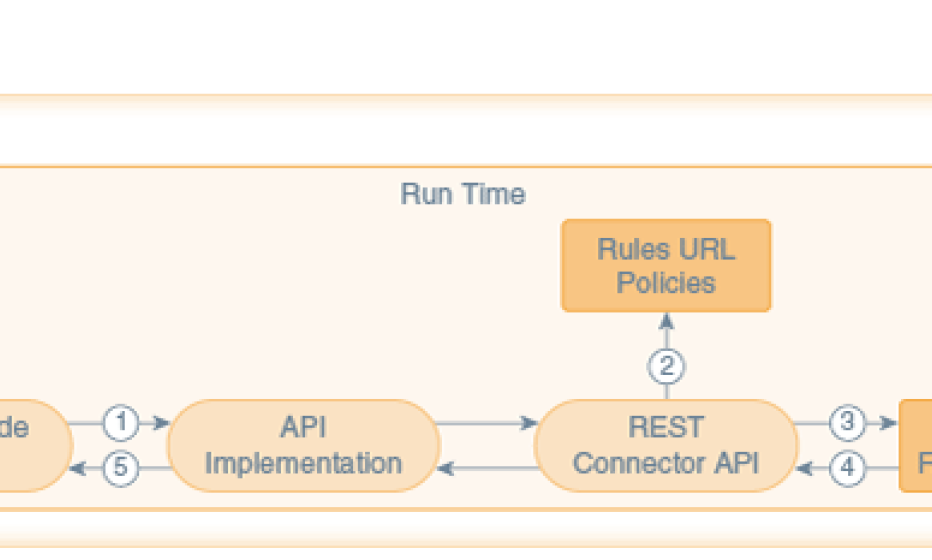
Of course there are also SOAP connectors and ICS connectors (for Integrated Cloud Service).
On the other side, the mobile applications must communicate with MCS. Therefore, SDK’s can be downloaded that provide authentication and create wrapper classes for the MCS platform API’s.
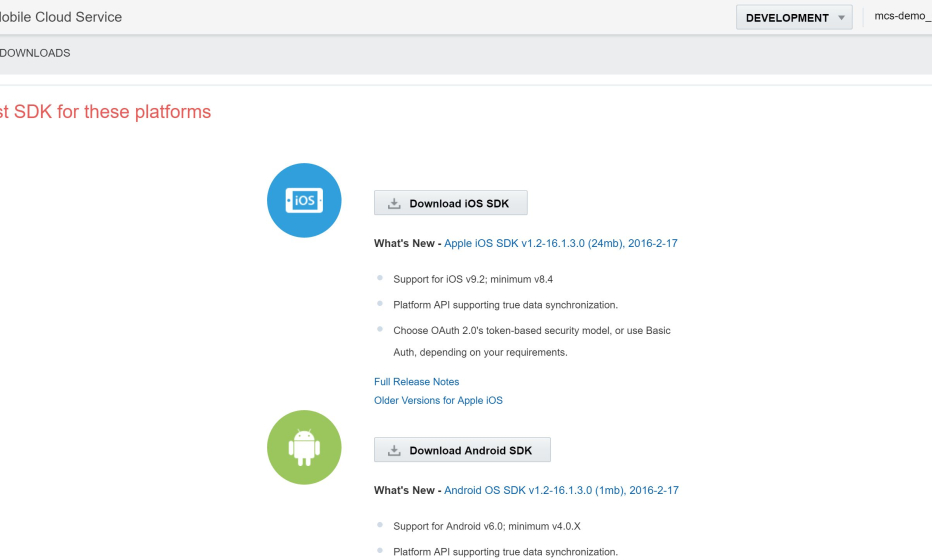
Last but not least, one of the most smart things Oracle has done in MCS is the integration of Node.js for defining the functionality in the custom API’s. With the Chrome V8 Javascript engine and the ability to use a widespread language, most developers will be able to quickly master the concepts of creating webservice backends for MCS.



